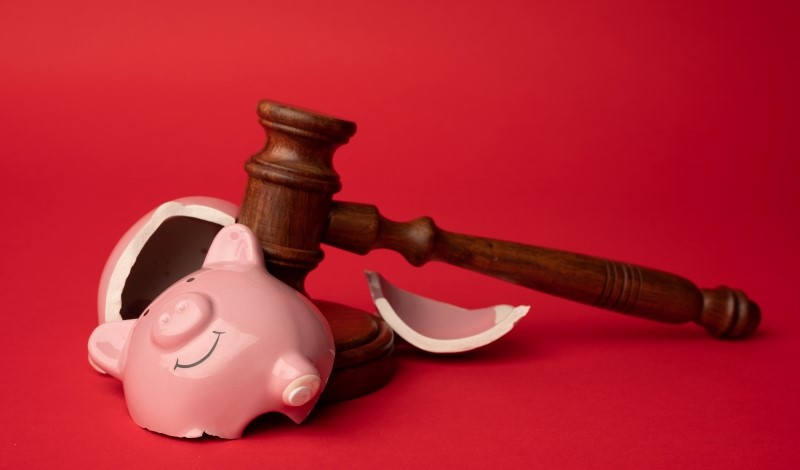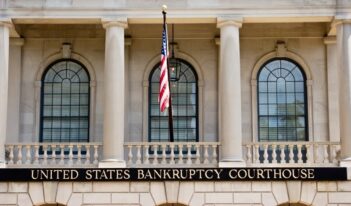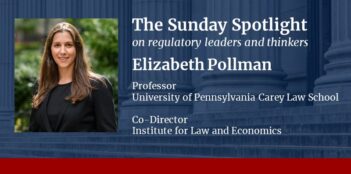
Scholars debate amending bankruptcy law to benefit consumers.
Headlines warn that commercial bankruptcy is on the rise in the United States. But consumer bankruptcy is going up too: Approximately 13 percent more individuals filed for bankruptcy this year than last year.
At first glance, this increase in consumer filing could seem like a bad sign. But in a more equitable bankruptcy system, would there be even more filings? Some experts argue that current laws keep many would-be filers from benefiting from the bankruptcy system.
Commentators often frame consumer bankruptcy as a chance for a financial fresh start. After all, proceedings under the U.S. Bankruptcy Code can help individuals in financial distress pay off their debt either by liquidating their assets or by creating repayment plans. In certain circumstances, bankruptcy courts even eliminate—or discharge—the debt altogether.
Obstacles abound, however, to benefiting from bankruptcy. Filers must navigate processes that are complex and expensive. Individuals often struggle to find affordable legal representation. Filing also negatively impacts credit reports, and filers must in some cases give up important property, such as their home or car.
Furthermore, Congress has made some common types of debt, such as student loans, difficult to resolve through bankruptcy. In late 2022, the U.S. Department of Justice and the U.S. Department of Education issued guidance that is intended to make it easier for eligible debtors to discharge student loans. Applicants and lawyers, however, report ongoing barriers to access.
Some scholars also note inequities in bankruptcy law. For example, one scholar contends that lawyers disproportionately pressure Black filers to enter into expensive and lengthy repayment plans while pointing white filers toward quicker, cheaper paths to debt discharge.
Consumer advocates have proposed legislative reforms that they argue would make filing for bankruptcy simpler and less expensive. Democratic Congressmembers, for example, have twice proposed a measure that they argue would streamline bankruptcy filing by replacing the two existing consumer bankruptcy chapters with one system.
Proponents contend that the law would also protect filers from losing their property, address racial and gender disparities, close loopholes for wealthy filers, and ban certain predatory creditor practices.
Critics of the proposed measure argue that it would complicate bankruptcy proceedings for creditors and trustees, resulting in longer and more expensive proceedings for debtors in the long run.
In this week’s Saturday Seminar, experts discuss proposals to reform bankruptcy law to benefit consumers.
- In an article for the California Law Review, Nicole Langston of Vanderbilt Law School argues that rules for debt discharge put economically marginalized bankruptcy filers at a disadvantage. Langston explains that there are many types of debt that are impossible or difficult to discharge under current bankruptcy law, including student loans and fines related to criminal prosecution. Langston argues that marginalized groups, including students of color and formerly incarcerated individuals, are more likely to incur such non-dischargeable debts. She suggests that, while making these specific categories of debts dischargeable is an important starting point, Congress should fulfill the “fresh start” purpose of bankruptcy by eliminating all categories of non-dischargeable debt.
- Congress should amend the Bankruptcy Code to protect Americans from predatory lending, Abigail Faust of Tel Aviv University argues in an article in the Wisconsin Law Review. Creditors profit from consumer debt by lending more than borrowers can afford to pay back and then reaping the interest from unpaid loans, Faust explains. To protect borrowers in the bankruptcy context, Faust argues that Congress should force creditors to prove that they considered the borrower’s ability to repay before extending the loan on which the debtor owes. Under this system, if creditors fail to submit sufficient documentation to the court, the court would dismiss the debt, Faust recommends.
- In an article for the Virginia Law Review, Richard M. Hynes of the University of Virginia Law School and Nathaniel Pattison of Southern Methodist University contend that Congress should exempt poor Americans from bankruptcy filing costs. Proving eligibility for bankruptcy is paradoxically costly, both in terms of time and attorney’s fees, Hynes and Pattison argue. To make filing more accessible, Hynes and Pattison propose that Congress should allow qualified debtors to initiate bankruptcy by submitting a “poor debtor’s oath,” or a simple declaration of their lack of assets. Hynes and Pattison suggest that the burden and related costs should then shift to the party with more means—creditors—to challenge the oath’s validity.
- Congress should make infectious disease medical debts easier to discharge through bankruptcy, argues Creola Johnson of Ohio State University College of Law in an article in Penn State Law Review. Pandemic medical bills have put many Americans in jeopardy of bankruptcy, Johnson warns. Bankruptcy courts are split, however, on whether to characterize such debt as “consumer debt” or “non-consumer debt,” Johnson explains. Current laws make consumer debts—which are expenses incurred for personal, family, or household purposes—harder to discharge through bankruptcy than non-consumer debts, Johnson points out. Johnson argues that Congress should amend the Bankruptcy Code to define all infectious-disease debt explicitly as non-consumer debt.
- Financial education requirements under current bankruptcy law are inequitable for incarcerated debtors, argues Sydney Calas of The Center for Death Penalty Litigation in an article for Emory Bankruptcy Developments Journal. Under an act designed to deter bankruptcy fraud, bankruptcy filers must complete credit counseling and a financial management course, Calas explains. Calas argues that these requirements create impossible hurdles for incarcerated debtors, who have limited means to access coursework remotely and who must complete courses without adequate supports for learning barriers. To make filing possible from prison, Calas suggests that Congress mandate that prisons offer the required courses in person and that the coursework be restructured to include appropriate modes of instruction for people who are incarcerated.
- Bankruptcy law is also failing consumers in the corporate arena, Michael R. Akselrad of Weil, Gotshal & Manges LLP argues in an article for the Boston College Intellectual Property & Technology Forum Journal. Akselrad warns that looming breakdowns of social media and technology companies may result in the sale of sensitive consumer information through bankruptcy court proceedings. Currently, courts can permit debtor companies to sell certain consumer information to the highest bidder in order to pay down debts, Akselrad contends. Akselrad suggests that Congress should amend the Bankruptcy Code to limit the sale of sensitive consumer information.
The Saturday Seminar is a weekly feature that aims to put into written form the kind of content that would be conveyed in a live seminar involving regulatory experts. Each week, The Regulatory Review publishes a brief overview of a selected regulatory topic and then distills recent research and scholarly writing on that topic.



